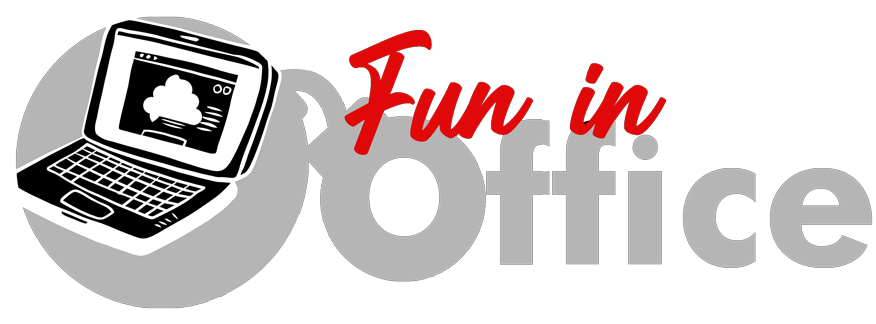The Evolution of Project Management

Project Management Trends has been a critical aspect of business operations for centuries. However, the methodologies and approaches have significantly evolved over time. Today, we are witnessing a new wave of trends that are shaping the future of project management in the office and worklife.
The Rise of Agile and Scrum
Agile and Scrum methodologies have gained significant traction in recent years. These approaches prioritize flexibility, collaboration, and customer satisfaction over rigid processes and documentation. Agile and Scrum have proven to be particularly effective in software development and IT projects, but their principles are increasingly being applied in other sectors as well.
Remote Project Management Trends

The COVID-19 pandemic has accelerated the shift towards remote work. This trend has significant implications for project management. Remote project management requires robust communication tools, clear expectations, and trust among team members. It also necessitates a shift from time-based to results-based performance metrics.
AI and Automation
Artificial Intelligence (AI) and automation are revolutionizing project management. AI can automate routine tasks, provide predictive analytics, and improve decision-making. Automation can streamline processes and increase efficiency. However, the adoption of AI and automation also raises questions about job security and ethical considerations.
Sustainability in Project Management
Sustainability is becoming a key consideration in project management. This trend is driven by increasing awareness of environmental issues, regulatory pressures, and consumer demand for sustainable products and services. Project managers are now expected to incorporate sustainability principles into their project planning and execution.
The Future of Project Management

The future of project management is exciting and full of possibilities. As we navigate these trends, it’s crucial to remember that the ultimate goal of project management remains the same: to deliver value to stakeholders. Whether it’s through Agile methodologies, remote work, AI and automation, or sustainability, the future of project management promises to be dynamic and transformative.
FAQs
-
What are the major trends in project management?
Major trends in project management include agile and lean methodologies, increased emphasis on remote and virtual teams, adoption of artificial intelligence and automation, greater focus on sustainability and green project management practices, and the use of data analytics for decision-making.
-
What is a project trend?
A project trend refers to a pattern or direction of change that occurs within the field of project management over a period of time. These trends can influence how projects are planned, executed, and controlled.
-
What are the 4 types of project management?
The four main types of project management methodologies are:
Waterfall
Agile
Scrum
Kanban -
What would be the future of project management?
The future of project management is likely to involve further integration of technology, increased emphasis on flexibility and adaptability, continued globalization of project teams, and a focus on sustainability and ethical considerations.
-
What are the three trends in management?
Three trends in management include digital transformation, remote work and virtual teams, and a focus on employee well-being and mental health.
-
What are the four main types of trend?
The four main types of trend can include economic trends, social trends, technological trends, and environmental trends.
-
What is trend and its types?
A trend refers to a general direction in which something is developing or changing. Its types can include social trends, economic trends, technological trends, and more.
-
What are trends examples?
Examples of trends include the rise of remote work, the increasing use of renewable energy sources, the popularity of certain fashion styles, and the adoption of smartphones and other mobile devices.
-
What are five examples of trend?
Examples of trends could include the increasing use of artificial intelligence, the rise of eco-friendly products, the popularity of plant-based diets, the growth of online shopping, and the emergence of virtual reality technology.
-
What are the 5 common types of trend forecasting?
The five common types of trend forecasting include environmental scanning, scenario analysis, Delphi method, trend extrapolation, and quantitative forecasting models.
-
What is trend analysis in PMP?
Trend analysis in Project Management Professional (PMP) refers to the process of examining project performance over time to identify patterns or trends that could impact future performance. It involves analyzing historical data to make predictions or adjustments for future project activities.
-
What is a trend in management?
In management, a trend refers to a significant and sustained change or development in a particular aspect of business or organizational operations. These trends can influence strategic decision-making and planning.
-
Why is project management booming?
Project management is booming due to several factors such as globalization, technological advancements, increasing complexity of projects, the need for efficiency and cost-effectiveness, and the growing recognition of the importance of structured project management methodologies in achieving organizational goals.
-
What is a trend diagram?
A trend diagram is a graphical representation that illustrates the direction or pattern of change in data over time. It often involves plotting data points on a graph to show trends or fluctuations.
-
What is a trend concept?
The trend concept refers to the idea that certain patterns or directions of change can be observed in various aspects of society, economy, technology, etc. Understanding trends allows businesses and organizations to anticipate future developments and adapt their strategies accordingly.
-
What is a control chart in PMP?
In PMP, a control chart is a graphical tool used to monitor and analyze project performance over time. It helps project managers identify trends, variations, and deviations from the expected values, enabling them to take corrective actions as needed to keep the project on track. Control charts are particularly useful in quality management processes.
-
What is Agile project management?
Agile project management is a methodology that prioritizes flexibility, collaboration, and customer satisfaction. It involves iterative development cycles, regular feedback, and continuous improvement.
-
How does remote work affect project management?
Remote work requires robust communication tools, clear expectations, and trust among team members. It also necessitates a shift from time-based to results-based performance metrics.
-
What role does AI play in project management?
AI can automate routine tasks, provide predictive analytics, and improve decision-making in project management. However, its adoption also raises questions about job security and ethical considerations.
-
Why is sustainability important in project management?
Sustainability is important in project management because it helps to reduce environmental impact, meet regulatory requirements, and respond to consumer demand for sustainable products and services.
Navigating the Project Management Trends: The Future of Office Worklife Awaits
Agile AI Automation Project Management Remote Work Scrum Sustainability
Last modified: March 18, 2024






















